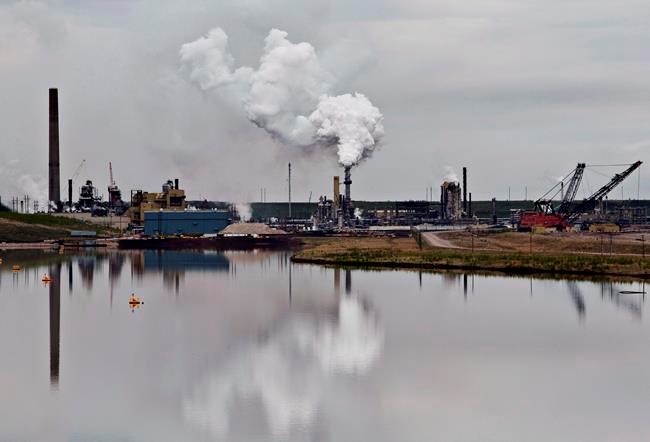Victoria Mayor Lisa Helps says her thinking on resource extraction wasn’t shifted by a recent tour of the oilsands.
“What I am left with from my visit is that while there is only one Earth, one climate and one shared future for the planet, there are two different energy paradigms in Canada right now,” Helps writes in a blog entry about her visit last Friday to Cenovus’s Foster Creek site.
She said she went with an open mind, and while she returned with a deeper understanding of improvements being made in extraction processes, her belief that we have to transition away from fossil fuels has not changed.
“They explained how that in developing the plant they had studied wildlife movements to learn where wildlife bridges need to be built and — where possible — they work around sensitive wildlife habitat,” Helps writes.
“They said they have detailed restoration plans. They also showed me examples of how water is reused, methane is captured and reused, each camp building has its own sewage-treatment system and all the water is reused. There are lots of closed-loop systems.”
The oilsands has its own paradigm, she writes.
“In this paradigm, there is no end to oil-and-gas extraction in sight. I asked the VP of Cenovus point blank: ‘What are your plans to transition away from fossil fuels and to renewable energy?’ He said: ‘We have no plans to do that; that is not the business we are in.’ I appreciated the forthrightness and honesty of his answer,” she writes.
“And I live in a different paradigm. In this paradigm, we are moving toward 100 per cent renewable energy by 2050 at the latest, and we don’t see a long-term future for the use of fossil fuels. This is where I believe we need to get to.”
She cites some steps taken to reach the goal:
• Declaring of a climate emergency locally and regionally.
• Accelerating implementation of the B.C. Step Code for building construction.
• Imposing a carbon price on city corporate air travel.
• Proposing initiatives such as making local transit free.
• Reducing the use of single-use plastic bags.
“There are two things that the two paradigms have in common. One is a barrel of oil — we use the oil that they produce. The other is human creativity and innovation,” she writes.
“Twenty per cent of emissions from a barrel of oil come from producing it. Eighty per cent come from combusting it,” she writes, adding that all have to work together to reduce carbon pollution by reducing the use of carbon fuels.
“This is where another of Canada’s amazing natural resources comes into play — our human capital. I saw it in the facility that I toured; there were bright, creative workers who were innovating and striving for continuous improvement. And I see it in Victoria’s and British Columbia’s tech sector. And in our colleges and universities. And in the responses to Infrastructure Canada’s Smart Cities Challenge.
“I see it in individual homes and businesses. We need to continue to mine Canada’s human capital and put it to work to its full potential,” she writes.
“And I also know for sure that standing at the edges of our paradigms throwing stones across the divide is not a good way forward. Genuine listening and an appreciation of other points of view are important to building understanding. That’s what I experienced in Alberta last week. I’m really happy I went.”
Helps was invited in February to tour an oilsands facility by a Calgary city councillor after Victoria council backed a call for a potential class-action lawsuit by B.C. municipalities against oil and gas companies.



